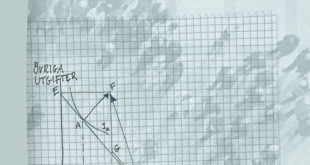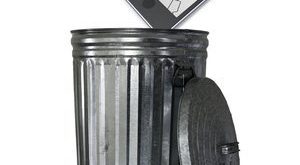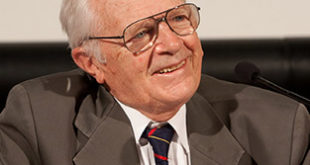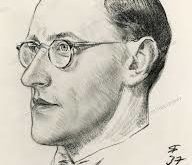I denna nyutkomna bok presenterar Mikael Priks och Jonas Vlachos — professorer i nationalekonomi vid Stockholms universitet — en genomgång av viktiga metoder ekonomer har till sitt förfogande för att göra empiriska analyser av stora och aktuella samhällsfrågor. Med utgångspukt i ekonometriska och statistiska modeller diskuterar man vilka olika identifikationsansatser som används för att undgå olika former av ‘selektionsbias’ när ekonomer försöker utröna kausala...
Read More »Biggest joke of the century
Biggest joke of the century
Read More »The money multiplier – neat, plausible, and utterly wrong
The money multiplier – neat, plausible, and utterly wrong The mainstream textbook concept of money multiplier assumes that banks automatically expand the credit money supply to a multiple of their aggregate reserves. If the required currency-deposit reserve ratio is 5%, the money supply should be about twenty times larger than the aggregate reserves of banks. In this way, the money multiplier concept assumes that the central bank controls the money supply...
Read More »Emigrantvisa
–[embedded content]
Read More »Luigi Pasinetti (1930-2023) In Memoriam
Luigi Pasinetti (1930-2023) In Memoriam Sad news has reached us today. Only two weeks after Victoria Chick’s death, another giant among Post Keynesian economists, Luigi Pasinetti, passed away yesterday at the age of 92. R.I.P.
Read More »Economic forecasting — why it matters and why it is so often wrong
Economic forecasting — why it matters and why it is so often wrong As Oskar Morgenstern noted in his 1928 classic Wirtschaftsprognose: Eine Untersuchung ihrer Voraussetzungen und Möglichkeiten, economic predictions and forecasts amount to little more than intelligent guessing. Making forecasts and predictions obviously isn’t a trivial or costless activity, so why then go on with it? The problems that economists encounter when trying to predict the future...
Read More »Dune Mosse
.[embedded content] Un viaggio in fondo ai tuoi occhi “dai d’illusi smammai” / Un viaggio in fondo ai tuoi occhi solcherò / Dune Mosse … Dentro una lacrima / E verso il sole / Voglio gridare amore / Uuh, non ne posso più / Vieni t’imploderò / A rallentatore, e … / E nell’immenso morirò! … Un’opera d’arte. Meravigliosa!
Read More »Hovern’ engan
Wars, conflicts, and other crises have left more than 30 million children displaced from their homes in the world today. More than 10 million children are refugees or asylum-seeking. [embedded content] “Whatsoever You Do to the Least of My Brothers You Do unto Me”
Read More »Sjörapportsfilosofi
I dessa tider — när ljudrummet dränks i den kommersiella radions pubertalflams — har man nästan gett upp. Men det finns ljus i mörkret. I programmet Text och musik med Eric Schüldt — som sänds på söndagsförmiddagarna i P2 mellan klockan 11 och 12 — kan man lyssna på seriös musik och en programledare som verkligen har något att säga och inte bara låter foderluckan glappa. Att få höra någon med intelligens och känsla tala om saker som vi alla går och bär på djupt inne i våra...
Read More »Vienna
Back in 1980 yours truly had the pleasure of studying at University of Vienna. When not studying or visiting Berggase 19, I often listened to this on my Sony Walkman: [embedded content]
Read More » Lars P. Syll
Lars P. Syll





